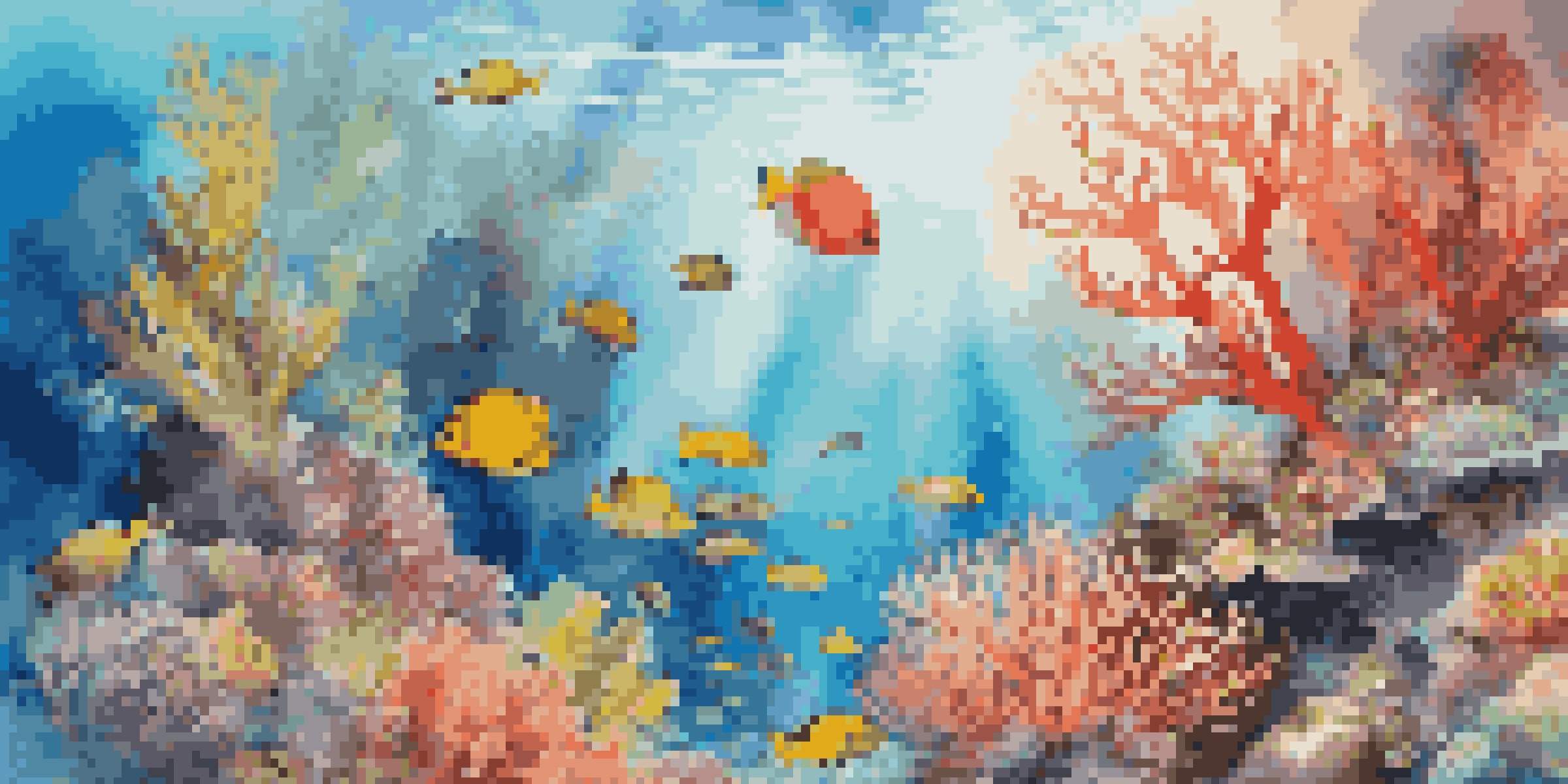Nature Studies: Learning About Ecology Through Travel

Understanding Ecology: The Science of Our Environment
Ecology is the study of how living organisms interact with each other and their environment. It's a broad field that encompasses everything from the smallest microorganisms to vast ecosystems. By understanding these relationships, we gain insights into the health of our planet and the impact of human activities.
In every walk with nature one receives far more than he seeks.
Traveling to diverse ecosystems allows us to witness these interactions firsthand. Whether it's observing the delicate balance in a rainforest or the adaptations of desert life, each environment offers unique lessons. This firsthand experience deepens our appreciation for the complexity and beauty of nature.
Moreover, engaging with local experts during our travels can enrich our understanding of ecological principles. These guides often share stories and knowledge passed down through generations, making the learning experience even more impactful.
Traveling as a Learning Tool for Ecological Awareness
Traveling provides a unique opportunity to immerse ourselves in new environments, fostering a deeper connection to nature. Each destination brings its own set of ecological challenges and triumphs, offering valuable lessons about sustainability and conservation. By witnessing these issues firsthand, we can better understand their global implications.

For example, visiting coral reefs can illustrate the effects of climate change and pollution on marine life. Seeing the vibrant colors of healthy coral juxtaposed with bleached reefs can be a powerful motivator for change. This emotional connection often drives travelers to become advocates for ecological preservation upon returning home.
Travel Enhances Ecological Awareness
Experiencing diverse ecosystems firsthand fosters a deeper understanding of environmental issues and inspires a commitment to conservation.
Additionally, travel encourages curiosity and exploration, essential traits for learning about ecology. Engaging with local flora and fauna not only enhances our knowledge but also inspires us to protect these environments for future generations.
Cultural Insights: Learning Ecology Through Local Practices
Many cultures have a deep-rooted connection to their natural surroundings, often resulting in sustainable practices that have been honed over centuries. Traveling allows us to discover these unique relationships and learn how indigenous communities manage their resources. This knowledge can often challenge our perspectives and inspire more sustainable choices in our own lives.
The greatest threat to our planet is the belief that someone else will save it.
For instance, visiting a community that relies on permaculture can teach us about biodiversity and ecosystem resilience. These hands-on experiences can help us understand the importance of preserving local knowledge and practices in the face of modernization. Such insights are invaluable as they showcase how intertwined our lives are with the health of the planet.
Moreover, by engaging with local traditions, travelers can contribute to preserving these practices, ensuring they are not lost to time. This reciprocal relationship promotes a shared responsibility for ecological stewardship across cultures.
Hands-On Experiences: Field Studies in Nature
Participating in field studies during travels can significantly enhance our understanding of ecological principles. Activities like birdwatching, tree identification, or water sampling provide hands-on experiences that make abstract concepts tangible. These practical lessons often lead to a lasting impression and a greater appreciation for biodiversity.
For example, joining a citizen science project while traveling allows individuals to contribute to valuable research. By collecting data on local species or habitats, travelers can play an active role in conservation efforts. This sense of involvement often fosters a deeper commitment to environmental issues long after the trip ends.
Cultural Practices Promote Sustainability
Engaging with local communities reveals sustainable practices that can inspire us to make environmentally friendly choices in our own lives.
Additionally, these experiences can spark a lifelong passion for ecology. Many travelers return from their adventures inspired to pursue careers in environmental science or conservation, demonstrating the powerful impact of immersive learning.
The Role of Ecotourism in Promoting Conservation
Ecotourism is a growing trend that combines travel with environmental awareness, allowing travelers to explore while supporting conservation efforts. By choosing ecotourism, individuals can contribute financially to the protection of natural habitats and wildlife. This model promotes sustainable practices and encourages local economies to value their natural resources.
Destinations that embrace ecotourism often provide educational programs, guiding travelers through their ecosystems. These experiences not only educate but also build a community of advocates for conservation. When travelers leave with newfound knowledge, they become ambassadors for the causes they encountered.
Moreover, ecotourism can help mitigate the negative impacts of traditional tourism. By focusing on sustainable practices, it ensures that nature and culture are preserved for future generations to enjoy.
Combining Travel and Education: Workshops and Retreats
Workshops and retreats that focus on ecological themes provide an excellent opportunity for in-depth learning. These programs often combine travel with hands-on activities, such as gardening, wildlife monitoring, or habitat restoration. Participants not only gain knowledge but also acquire practical skills they can apply in their own communities.
For instance, a retreat focused on sustainable farming practices can teach attendees about permaculture principles while allowing them to work in a farm setting. These immersive experiences can transform our understanding of food systems and environmental stewardship. The lessons learned can inspire us to adopt more sustainable practices in our daily lives.
Ecotourism Supports Conservation Efforts
Choosing ecotourism allows travelers to contribute to the protection of natural habitats while gaining valuable ecological knowledge.
Moreover, these collaborative environments foster a sense of community among participants. Sharing experiences and insights creates lasting connections, often leading to continued engagement in ecological endeavors long after the event concludes.
Inspiring Future Generations: The Importance of Nature Studies
Inspiring a love for nature in future generations is crucial for the health of our planet. Through travel and nature studies, young people can develop a sense of wonder and responsibility towards the environment. These experiences can ignite a passion for ecology that drives them to advocate for sustainable practices.
Educational trips that immerse students in natural settings can have profound effects on their understanding of ecological systems. When children witness the beauty of a forest or the fragility of a wetland, they are more likely to appreciate the importance of conservation. This emotional connection can lead to a lifelong commitment to protecting our planet.

As educators and parents, we have the responsibility to facilitate these experiences. By encouraging outdoor exploration and travel, we can help shape a generation that values and protects the natural world, ensuring a healthier planet for years to come.